Realme has released the tandem Realme 7 Pro and Realme 7 , offering an affordable choice in the mid-range. We tested the 7 Pro in recent days, while in this article we test the 7. There are many differences between the two models, also from the design point of view, while at the level of daily use they have points in common.
From an aesthetic point of view, the two terminals look like twins on the front and below, but differ on the back and on the sides. On the back because, despite a similar pattern, with a double blue color, the camera is positioned “at traffic lights” on the 7, while on the 7 Pro on it has a wider shape, albeit rectangular. In addition, Realme 7 differs on the right side, because it has the fingerprint sensor “embedded” below the on / off button. Let's start by saying that this physical button is lightning-fast, faster and more precise than the under-screen Touch ID found on 7 Pro, which is still appreciable. 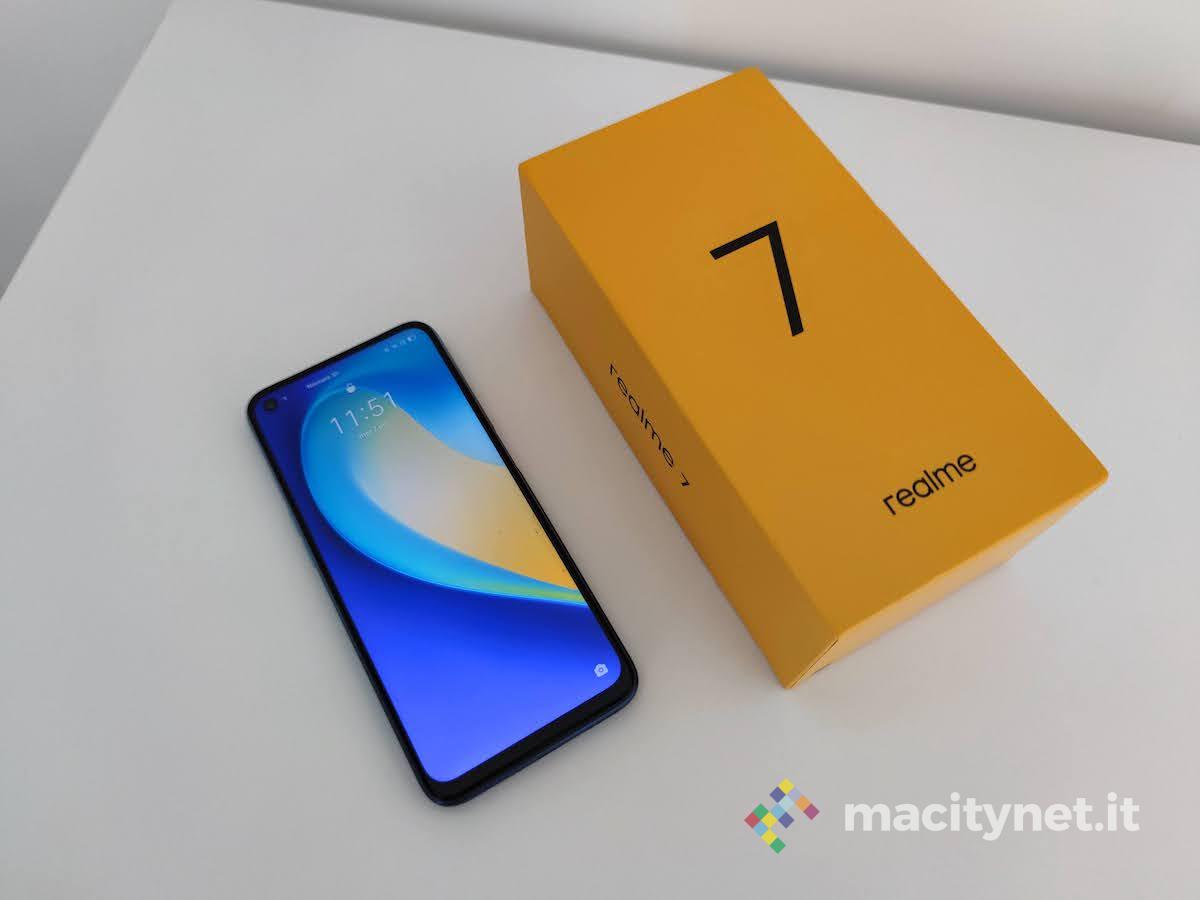
Another big difference between the two models is the support for fast charging. The 7 Pro offers a 65 W SuperDart charger inside the package, capable of recharging the terminal from 0 to 100 in 34 minutes; the Realme 7 offers a 30 W fast charger, which is hard to call “standard”, since it always offers a particularly fast recharge, however above the average of Android terminals in the same price range. 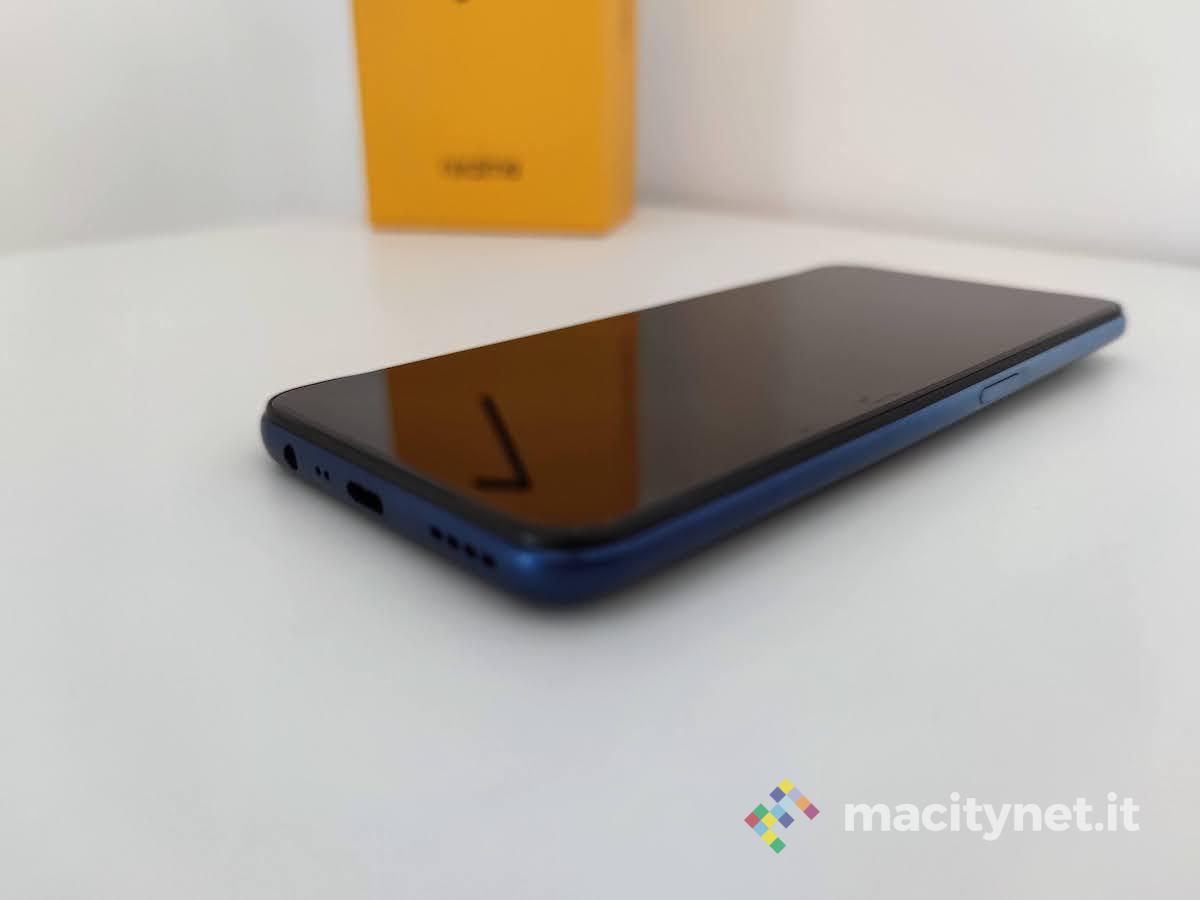
In terms of technical characteristics, Realme 7 sports the Mediatek Helio G95 chipset, which is the first to land on an Android terminal. In terms of performance, benchmark in hand, it barely loses the comparison with the Snapdragon 720G found on the 7 Pro model, even if in everyday use the two terminals seem to have the same “pace”. 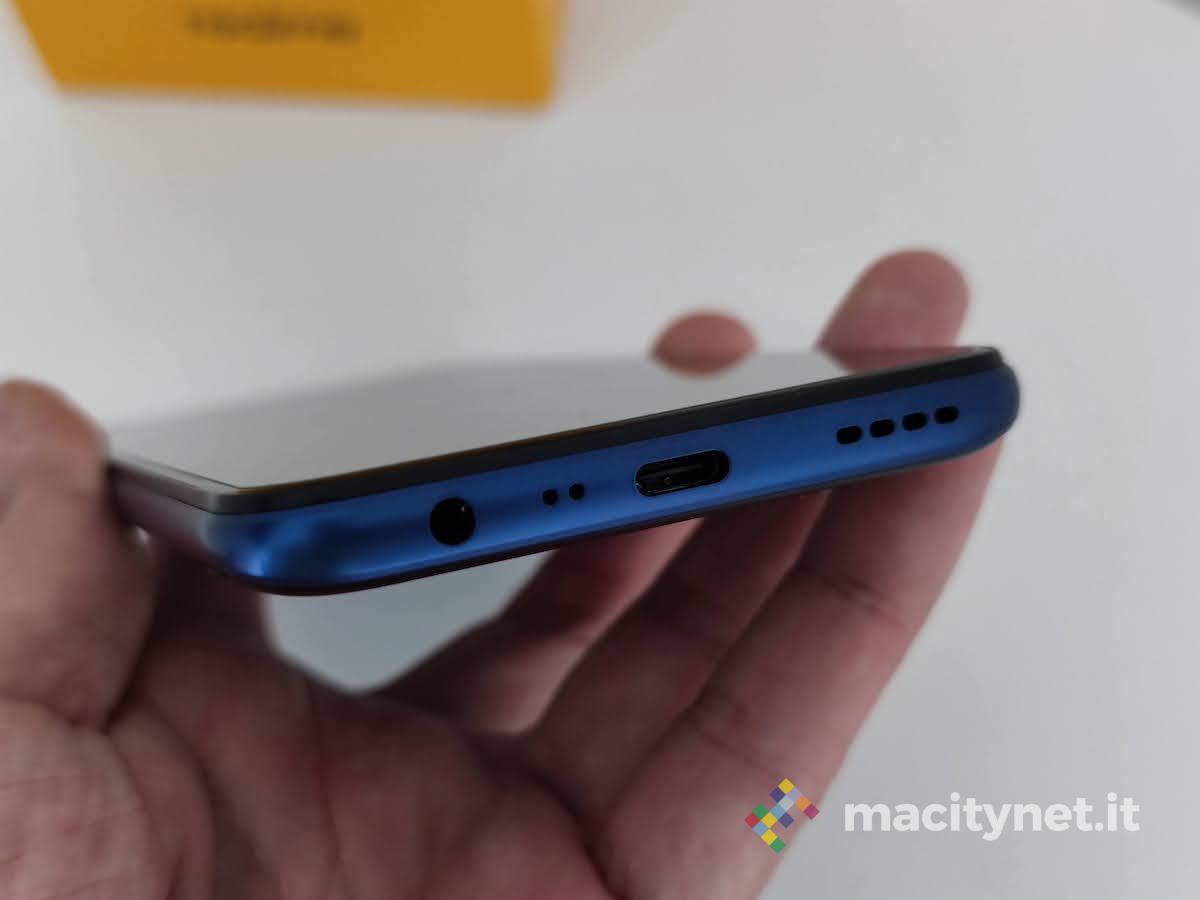
Unlike the 7 Pro, this 7 from Realme does not have a Super Amoled screen, but a 6.5-inch IPS, which like the Realme 6 offers a 90 Hz refresh. The 3.5mm headphone jack is present on the lower part, as well as the USB-C input, alongside the only speaker present: unlike the 7 Pro, this model does not offer stereo audio; pity, considering that it should be a gaming smartphone, albeit mid-range.
Specifications
As already mentioned, Realme 7 sports a 6.5-inch FHD + IPS LCD display with a resolution of 1080 x 2400 pixels and a pixel density of 405 PPI. The 90 Hz panel makes scrolling smooth, even more noticeable when scrolling through feeds, such as in the Twitter, Instagram, Facebook, and other similar apps. You can keep the refresh at 90Hz, or choose whether to set it to 60Hz to save energy, or let the device automatically adjust the refresh depending on the app in use. In any case, whichever option you choose, the everyday experience is satisfactory and the display absolutely manages to stand out in this price range. 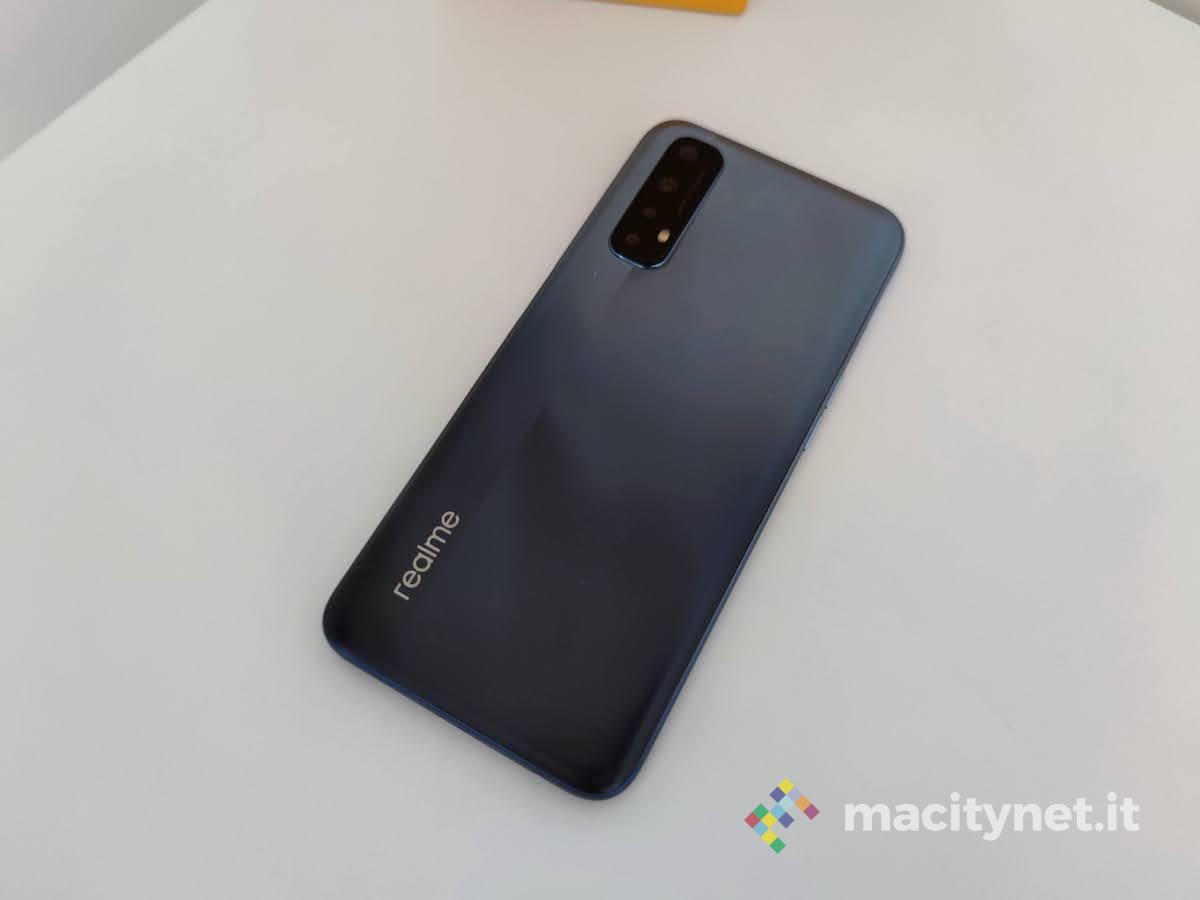
This is not the brightest display around due to its 480 nits, which in bright light conditions outdoors sometimes make the display unreadable at 100%. However, these are details, because in most of the times you will not have the slightest problem of legibility. 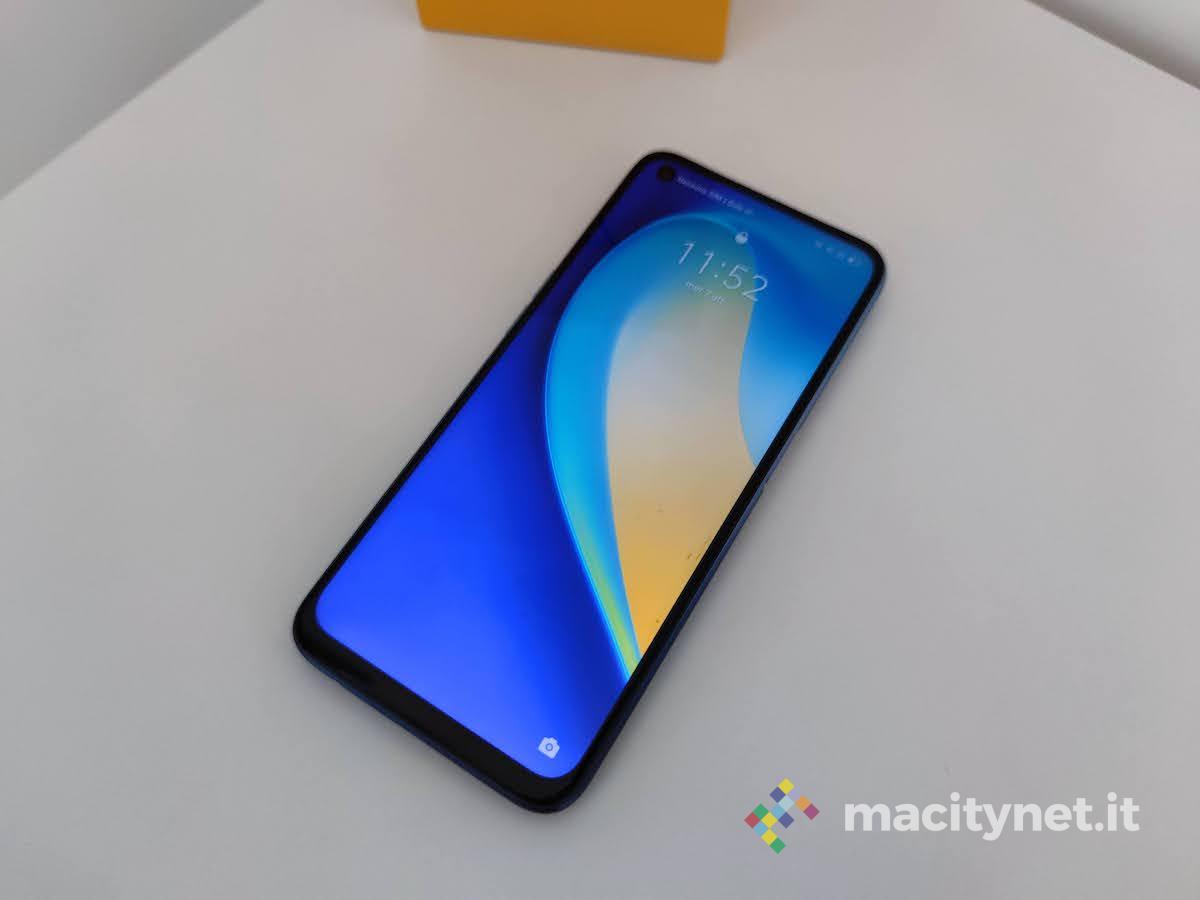
Despite slight backlight bleeding, color reproduction and viewing angles are good. There is support for Widevine L1, so HD movie playback on Netflix and Prime Video is supported, but there is no HDR10 + support. 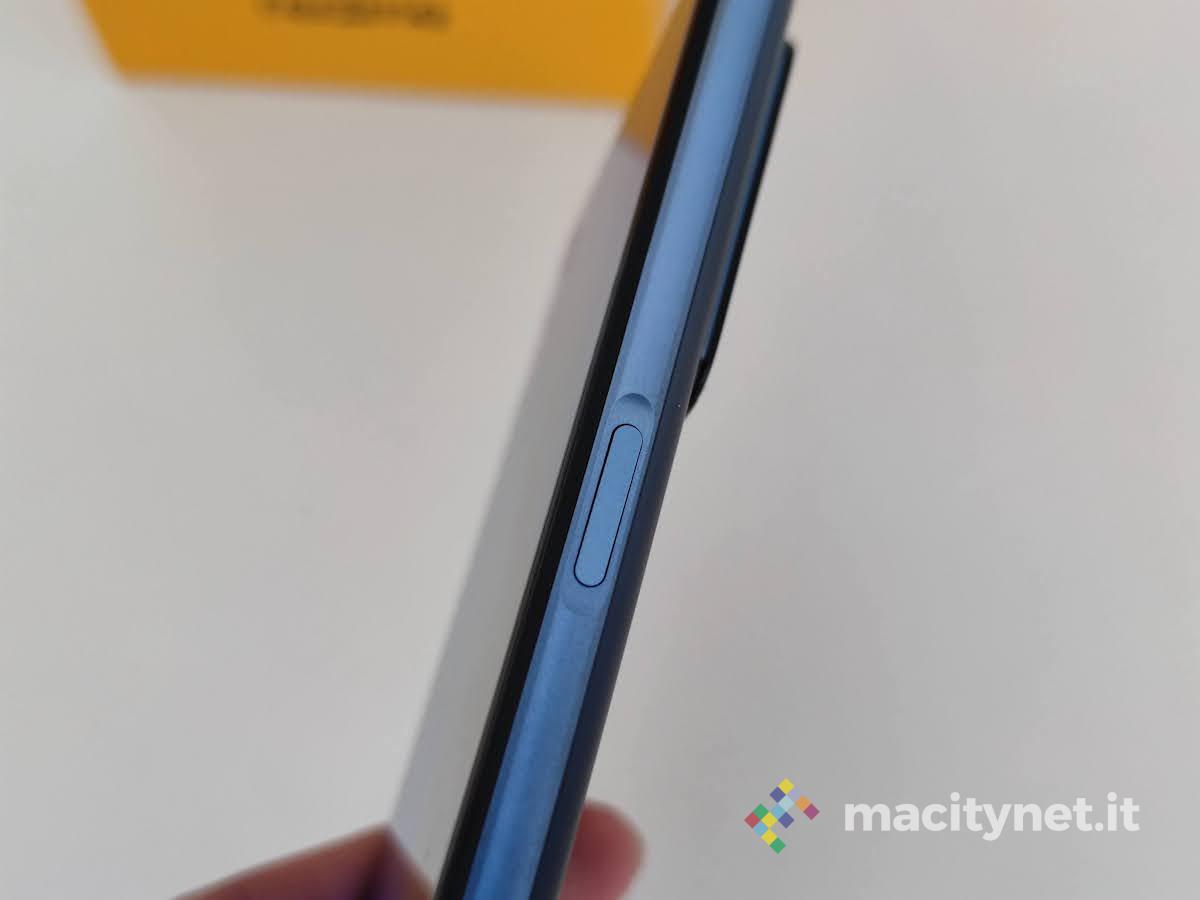
Coming to the general performance, in everyday life, as already anticipated, this Realme 7 is comparable to its older brother 7 Pro. The gaming performance is good at medium settings, thanks to the Mediatek Helio G95 chipset, similar to the Helio G90T of the Realme 6. It helps in the gaming department the Mali G76 GPU clocked at 900 MHz, compared to the 800 MHz of the previous model. We had no problem opening and playing smoothly by way of the likes of Call of Duty Mobile. Some slowdowns can be seen if you exaggerate with the quality of the details, but at medium-high settings you will have a really cheap gaming terminal in your hands. 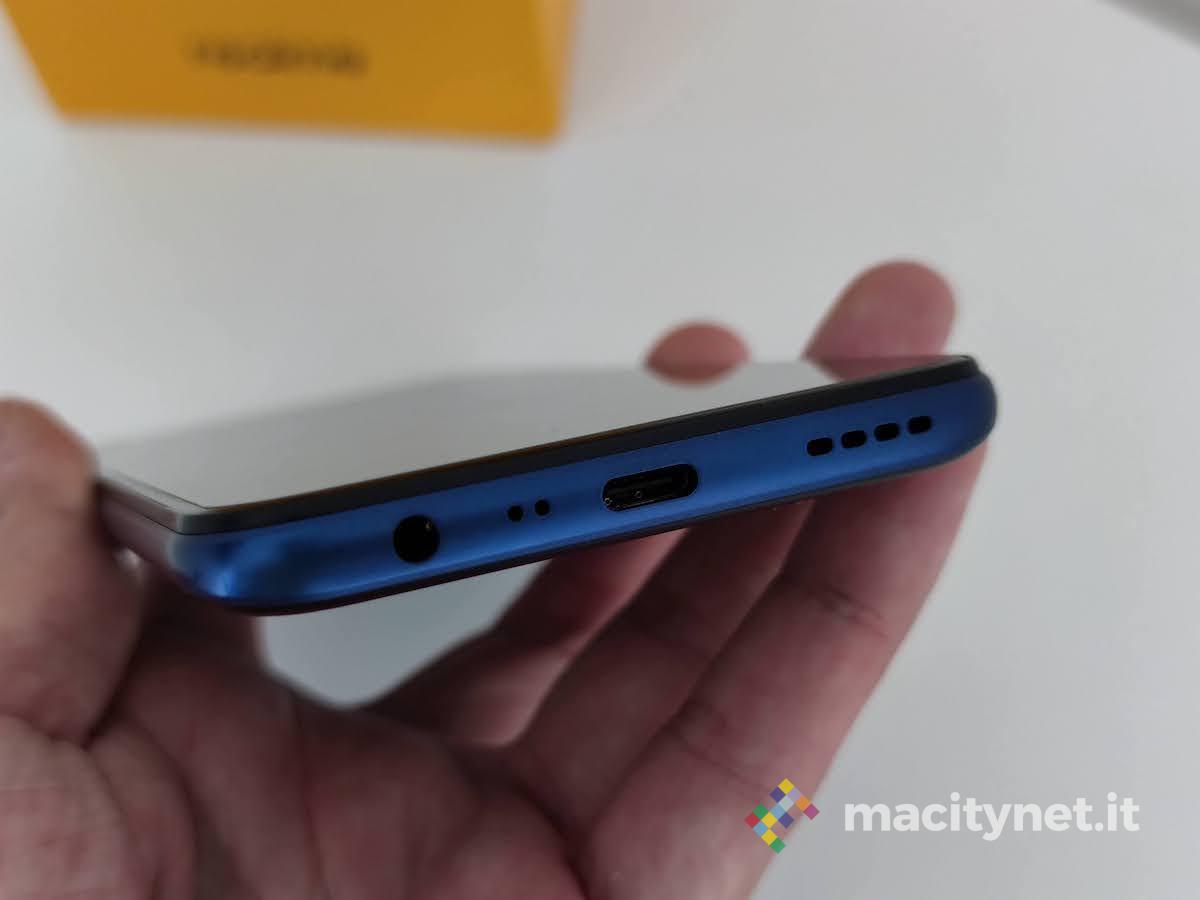
The benchmark scores are comparable to the Snapdragon 720G of the Pro model and in everyday use there are no slowdowns whatsoever. The call quality is good and the earpiece speaker delivers a clear and crystal clear voice, with a decidedly medium-high volume. The single speaker facing down is average in quality, while the volume is very high.
Camera
Realme 7 comes with a four-camera setup: a 64MP main camera with an f / 1.8 aperture, flanked by an 8MP ultra wide-angle camera, a 2MP depth sensor, and a 2MP macro camera. There is a 16MP selfie camera on the front. The 64MP camera uses a Sony IMX 682 sensor, and unless you select the 64MP mode, most images will have a 16MP resolution with pixel-bin. 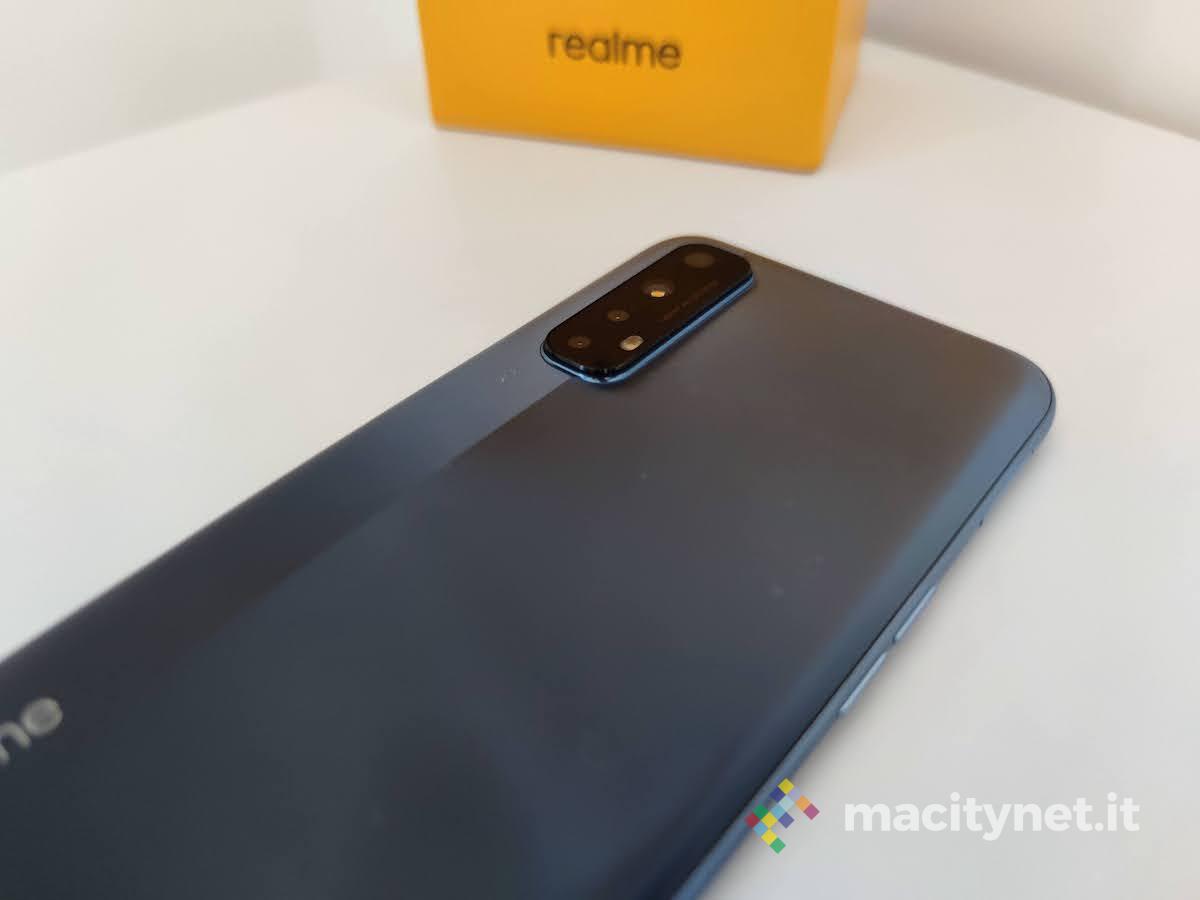
Daytime images look good, with a good amount of detail and appreciable color and dynamic range. From a photographic point of view, Realme 7 Pro shows something more than this model. The difference is also and above all perceived with ultra wide-angle cameras: here we notice a decline in image quality, even in daylight. Even the macro mode, which can be used on the 7 Pro, is not particularly noteworthy here.
Photographic samples:



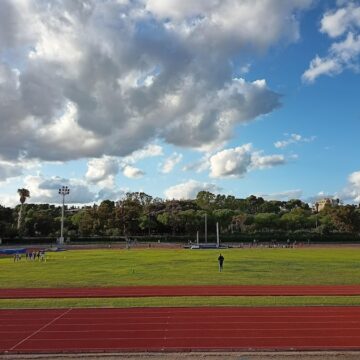






As light levels drop, the main camera also loses detail and noise is easily seen. Night mode comes to the rescue by adding some dynamic range to the overall image, but with moving objects it will be difficult to achieve optimal results.
Overall, however, considering the price range in which the terminal is inserted, the multimedia department can be considered generous, and certainly above the average of many other terminals in the same price range.
Battery life and charging speeds are impressive, less than the Pro model, but still impressive. The Realme 7 houses a 5,000mAh battery, which explains the thick profile and 195g weight. The battery is able to bring the autonomy to about a day and a half, while the charging speed is from 0 to 100 in less than an hour. Moreover, it takes less than 30 minutes to exceed the 50% charge and ensure a full day of use.
Conclusions
Realme 7 is a good update to the Realme 6 series, and stands as a perfect budget smartphone for gaming. Battery life is excellent, which helps gaming sessions. The display is good, the multimedia department is sufficient, which is certainly more than satisfactory if you look at the list price, of just 179 euros in its 4+ 64 GB memory variant.





